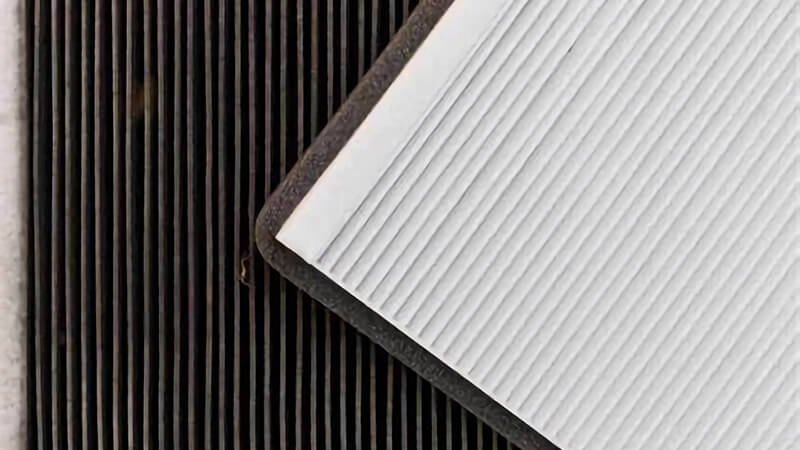Cabin filters play an essential role in the performance and comfort of vehicles. But what role do they play in the larger automotive supply chain? Let’s explore how cabin filters impact both vehicle functionality and market dynamics.
Cabin filters are crucial for maintaining indoor air quality in vehicles. As part of the vehicle's filtration system, they contribute significantly to passenger comfort and health. Understanding how cabin filters fit into the supply chain can reveal their broader importance.
As we look into the importance of cabin filters in vehicles, we need to understand their direct impact on health and comfort, which in turn influences their demand in the automotive market.
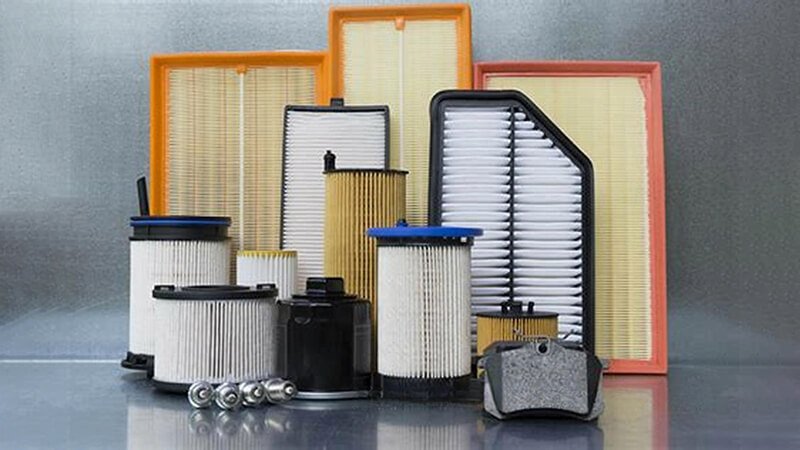
How do cabin filters impact indoor air quality in vehicles?
Indoor air quality is often overlooked when considering vehicle performance. However, cabin filters1 play a key role in maintaining clean air inside the car, which can significantly impact passengers' comfort and health.
Cabin filters trap pollutants like dust, pollen, and smoke, preventing them from entering the cabin. This keeps the air inside cleaner and safer for passengers, especially for those with allergies or respiratory issues.
The importance of cabin filters goes beyond just filtering the air; they contribute significantly to the overall health of passengers by removing airborne particles and pollutants. In urban environments where pollution levels2 can be high, cabin filters3 are especially crucial for maintaining a healthy environment inside the vehicle.
The following table provides a comparison of various pollutants and their impact on health:
| Pollutant | Source | Impact on Health |
|---|---|---|
| Dust | Road dust, construction, pollen | Allergies, asthma attacks, respiratory irritation |
| Pollen | Trees, grasses, flowers | Allergies, sinus issues, asthma flare-ups |
| Soot | Diesel engines, vehicle emissions | Respiratory diseases, cardiovascular issues, lung cancer risks |
| Exhaust Fumes | Vehicle emissions | Chronic respiratory issues, increased risk of lung cancer and other health problems |
By trapping particles as small as 0.3 microns, high-quality cabin filters ensure that these harmful pollutants do not make their way into the vehicle's cabin, significantly reducing the risk of health issues, particularly for sensitive individuals.
Further, in high-traffic areas or places with heavy industrial activity, the inside of a vehicle can quickly become an inhospitable environment due to pollutants in the air. With a good cabin filter, passengers breathe easier, literally and figuratively. The impact on indoor air quality cannot be understated, as it directly correlates to better long-term health for anyone spending significant time in a vehicle.
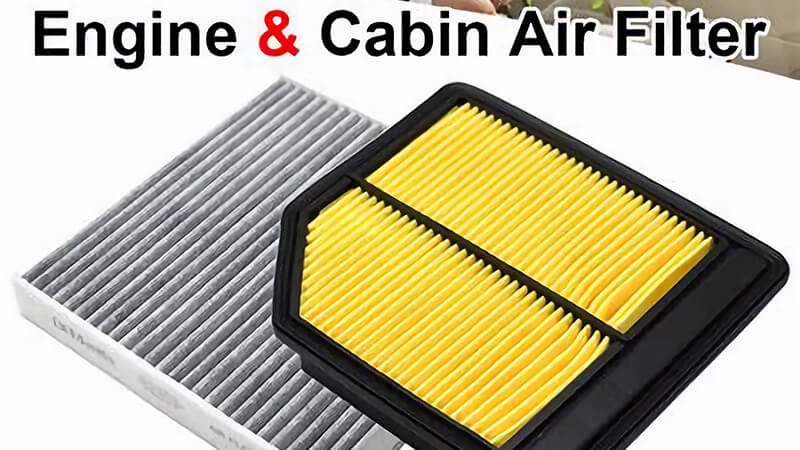
What are the health benefits of using high-quality cabin filters?
Choosing the right cabin filter4 can have significant health benefits. From reducing exposure to harmful particles to improving overall well-being, let’s explore how high-quality filters can make a difference.
High-quality cabin filters help reduce the presence of allergens, pollutants, and harmful particles inside the car, contributing to better respiratory health. They also improve overall driving comfort, especially for passengers with sensitivities.
Health benefits of high-quality cabin filters go well beyond improving air quality. They also provide long-term respiratory health benefits. Filters such as HEPA filters5 are designed to capture very fine particles that can otherwise easily penetrate into the lungs and the bloodstream.
Here’s a breakdown of how different filter types contribute to health:
| Filter Type | Pollutants Captured | Health Benefits |
|---|---|---|
| HEPA | Dust, pollen, bacteria, viruses | Reduces allergic reactions, asthma symptoms, and risk of respiratory diseases |
| Activated Carbon | VOCs, odors, cigarette smoke, gases | Improves air quality, reduces exposure to harmful gases, enhances comfort |
| Standard Paper | Larger particles, dust, leaves | Provides basic protection but less effective against smaller particles |
HEPA filters are particularly beneficial for individuals with asthma, allergies, or those who suffer from chronic respiratory issues. By filtering out even the smallest particles, HEPA filters significantly improve indoor air quality and help keep the lungs and airways clear of harmful contaminants.
Additionally, activated carbon filters remove VOCs and odors that may irritate the respiratory system, creating a cleaner and more comfortable environment. In vehicles, where exposure to such pollutants can be constant, these filters are a must-have for anyone concerned with indoor air quality.
Regularly using high-quality filters, such as those made by Runex Auto, is a simple yet effective way to ensure that passengers are breathing clean air, reducing the risk of health problems related to air pollution.

How often should cabin filters be replaced to maintain optimal performance?
Just like any other filter in your vehicle, cabin filters6 require regular maintenance to ensure they perform effectively. But how often should they be replaced to maintain optimal air quality and vehicle performance?
Cabin filters should generally be replaced every 12,000 to 15,000 miles, or once a year, depending on driving conditions. If you frequently drive in dusty or polluted areas, more frequent replacements may be necessary.
The replacement schedule for cabin filters can vary depending on a few factors, such as the environment where you drive and the type of filter you use. In general, most vehicle manufacturers recommend changing the cabin filter every 12,000 to 15,000 miles, or roughly once a year. However, in certain driving conditions, such as urban areas with high pollution7 or rural areas with heavy dust, the replacement frequency may need to be increased.
Here’s a more detailed guide based on driving conditions:
| Driving Condition | Recommended Replacement Interval |
|---|---|
| Urban, High-Pollution Areas | Every 10,000 miles or 6 months |
| Rural, Dusty Environments | Every 8,000 miles or 6 months |
| Highway Driving with Little Dust | Every 12,000 to 15,000 miles |
| Standard City Commuting | Every 12,000 to 15,000 miles |
If you notice any signs such as reduced airflow, unpleasant odors, or increased allergy symptoms while driving, it might be time to replace the cabin filter sooner. These are indicators that the filter has become clogged or inefficient, allowing pollutants to enter the cabin air.
Regularly replacing the cabin filter ensures that you maintain optimal air quality, reduce the strain on the vehicle’s air circulation system, and ensure the vehicle’s ventilation system continues to function efficiently.
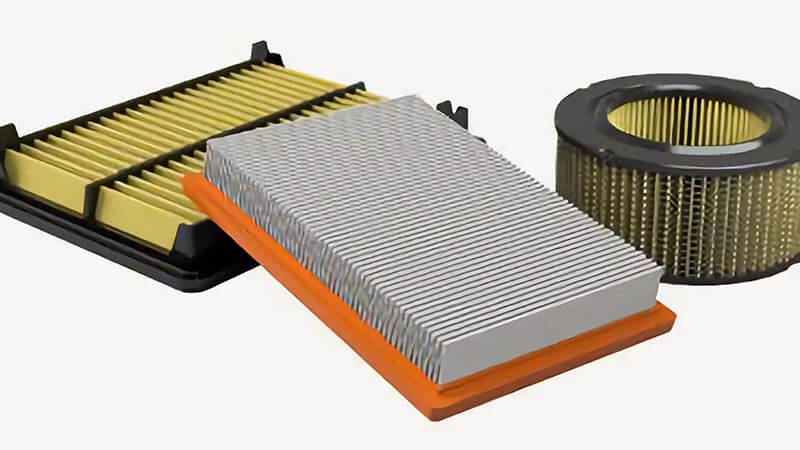
What are the differences between HEPA and activated carbon cabin filters?
When it comes to high-performance cabin filters, HEPA filters8 and activated carbon filters9 are two of the most popular options. But what sets them apart, and which one is best for your vehicle?
HEPA filters are designed to capture very fine particles, while activated carbon filters are better at absorbing odors and gases. Each type has its specific strengths, so choosing the right one depends on your needs.
The decision between HEPA and activated carbon cabin filters depends on the types of pollutants you want to combat inside your vehicle. HEPA filters are designed specifically for capturing very fine particulate matter, including dust, pollen, bacteria, and even viruses. They are highly effective at improving air quality in environments with a lot of allergens or airborne diseases.
Activated carbon filters, on the other hand, excel at capturing odors, smoke, and gases. These filters are designed to trap harmful gases such as carbon monoxide10 and volatile organic compounds (VOCs)11 that may emanate from vehicle exhaust or external environmental pollution.
Here’s a comparison of HEPA vs activated carbon filters:
| Filter Type | Strengths | Best Use Case |
|---|---|---|
| HEPA | Captures very fine particles (0.3 microns), including pollen, dust, and bacteria | Ideal for reducing allergies, asthma, and improving overall air quality |
| Activated Carbon | Absorbs odors, VOCs, smoke, and harmful gases | Best for neutralizing bad smells and absorbing exhaust fumes or cigarette smoke |
If you're dealing with strong odors, chemicals, or smoke, activated carbon filters are a must-have. But if your primary concern is airborne allergens or particulate matter, a HEPA filter would be the better option. Some high-end filters, like those offered by Runex Auto, combine both technologies for comprehensive air protection.
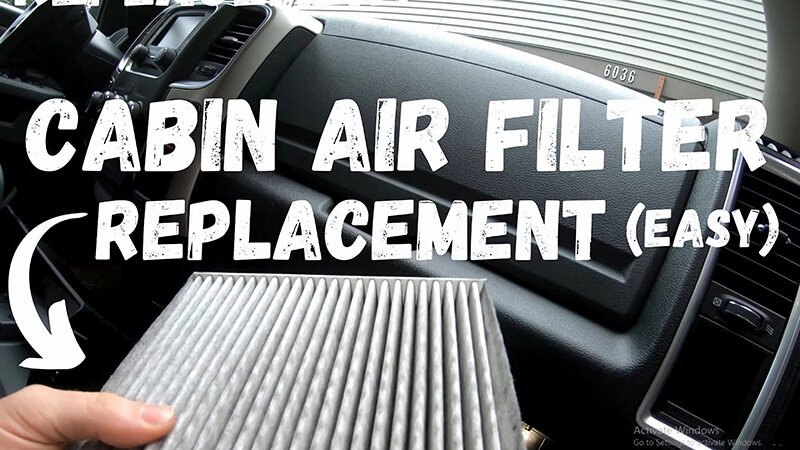
How does the cost of advanced cabin filters affect their market adoption?
While advanced cabin filters offer superior performance, they come at a higher cost. How does this affect their adoption in the market, and is the investment worth it for consumers?
The higher cost of advanced cabin filters can be a barrier for some consumers, but the added benefits, such as better air quality and improved health, may justify the investment for others.
The cost of advanced cabin filters, such as HEPA filters12 or activated carbon filters13, is generally higher than that of standard filters. The higher cost often stems from the more advanced technology and materials used in their construction, as well as their longer lifespan. While a standard cabin filter may only cost a few dollars, high-performance filters can cost significantly more, which may deter some consumers from purchasing them.
Despite the higher upfront cost, the market adoption of advanced cabin filters is increasing. This is because consumers are becoming more aware of the importance of air quality14 and the direct link between clean air and better health. Additionally, the long-term benefits of using these filters—such as improved passenger comfort and reduced healthcare costs due to fewer respiratory issues—make the investment worthwhile for many.
Here’s a comparison of costs and benefits:
| Filter Type | Cost per Filter | Benefits |
|---|---|---|
| Standard Paper | Low ($5 - $15) | Basic filtration, inexpensive replacement |
| HEPA | Moderate ($20 - $50) | Excellent for trapping fine particles, ideal for health-conscious consumers |
| Activated Carbon | Moderate ($15 - $30) | Effective for odor removal, good for polluted areas |
| Hybrid (HEPA + Activated Carbon) | High ($40 - $70) | Combines fine particle filtration and odor neutralization, best for overall air quality |
As the demand for cleaner, healthier air grows, and as more consumers experience the benefits of advanced cabin filters, the adoption of higher-end filters is expected to rise. Companies like Runex Auto play a vital role in making these filters more accessible to a broader market, offering cost-effective options without compromising quality.

Conclusion
Cabin filters are vital to maintaining clean air inside your vehicle, improving health, comfort, and driving experience. The type of filter you choose can make a significant difference, from HEPA filters that trap tiny particles to activated carbon filters that absorb odors. Regular maintenance and understanding the differences between filters are key to ensuring optimal air quality. With companies like Runex Auto15 offering a range of solutions, consumers can easily find the right filter to meet their needs and enhance their vehicle’s performance.
-
Offers insights into the factors contributing to the higher cost of HEPA filters compared to standard cabin filters. ↩
-
Details the cost and performance differences between activated carbon filters and standard cabin filters. ↩
-
Explains the relationship between air quality and health, emphasizing why improving air quality inside vehicles can have long-term health benefits. ↩
-
Details how high-quality cabin filters contribute to better air quality and health benefits for vehicle passengers. ↩
-
Provides an explanation of HEPA filters, highlighting their efficiency in capturing fine particles to improve respiratory health inside the vehicle. ↩
-
Provides insights into recommended replacement intervals for cabin filters based on driving conditions. ↩
-
Explains how environmental factors like pollution and dust impact the performance and maintenance of cabin filters. ↩
-
Explains the function of HEPA filters and their effectiveness in capturing fine particles to enhance air quality. ↩
-
Offers details on activated carbon filters and their ability to trap odors, smoke, and harmful gases. ↩
-
Provides insight into how carbon monoxide from vehicle exhaust can impact indoor air quality and health. ↩
-
Explains what VOCs are and their impact on vehicle air quality, highlighting the importance of activated carbon filters in trapping them. ↩
-
Offers insights into the factors contributing to the higher cost of HEPA filters compared to standard cabin filters. ↩
-
Details the cost and performance differences between activated carbon filters and standard cabin filters. ↩
-
Explains the relationship between air quality and health, emphasizing why improving air quality inside vehicles can have long-term health benefits. ↩
-
Runex offers all kinds of OEM Cabin Filter Brands, do not miss your change. ↩

